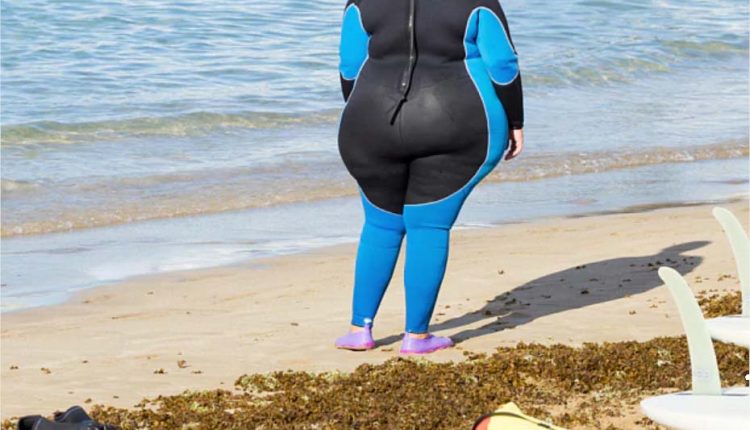Too Fat To Dive? Scuba Diving Safety and Scuba Equipment Concerns for Overweight or Obese Divers
Is it Safe for Overweight or Obese People to go Scuba Diving?
Are you a bit chunky? Maybe you’ve gotten a little bit husky since your last dive. Possibly you’re just outright overweight or even borderline categorically obese. No matter the extent of your present girth you’re asking yourself “Am I Too FAT To Dive?”
So, how fat is too fat when it comes to scuba diving? Should you be concerned about your safety?
Scuba diving is an activity which can be enjoyed by nearly everyone. With proper supervision young children can learn to dive and most people who are in reasonably good health will be able to continue diving well into their senior years, there is no age requirement for scuba diving.
There is also no weight requirement for scuba diving. That being said, just because there is no weight requirement or specific overweight limit doesn’t mean that weight isn’t a factor. There are a few things which will need consideration if you are to dive safely as an overweight diver.
Fitness
Some people are “fat but fit”, meaning that their weight places them in an overweight category but their relative fitness is comparable to the average fitness of more ideal weight individuals. If you feel that you are fit, even though you are considered to be overweight, then it is most likely that you will have little difficulty scuba diving, with the exception of possible equipment issues related to your size.
If you’re overweight and also out of shape, then you have a bigger problem, a bigger problem than your weight that is. It’s most likely that you aren’t “too fat to scuba dive”, but rather “too out of shape to scuba dive”.
Safety Concerns
Being out of shape can be a create serious safety concerns for divers. First of all, lack of endurance will eventually lead to fatigue. Diving in a state of fatigue could cause you to make poor decisions and will almost certainly result in a state of panic. When you’re breathing hard on the regulator, struggling to meet your oxygen demands, the thought of suffocating brings about a natural state of panic. Breathing easily and naturally is critical to remaining calm while underwater, so anything which results in labored breathing should be viewed as a safety problem.
Air consumption is another concern. Everyone utilizes oxygen at relatively different rates. However, compared to a smaller more fit version of yourself, you will without exception use your air at a faster rate the larger you are and the more out of shape you are. While increased air consumption by itself isn’t necessarily a safety concern, depending on the depths of your dives (With shallower dives being more of a concern) it does increase the chance that you could end up in an out of air situation.
So what should you do if you’re too fat, or too out of shape? In this case it would be best not to fret too much about your weight initially, instead concentrate on improving your overall fitness as it will have a much larger impact on your ability to scuba dive. Cardiovascular fitness should be the area to focus your efforts as this will have the greatest effect on air consumption and general comfort while scuba diving. Look for a simple scuba workout combined with nearly any form of cardio to help you move into the “fat but fit” category.
Maneuverability
Maneuverability can be an issue if you’re an overweight scuba diver due to excess fat or even if you happen to have the musculature of an NFL player.
Are you able to put scuba fins on yourself? If your regulator pops out of your mouth will you be able to reach behind, find the correct hose, and then retrieve the regulator without assistance? If you had to ditch your gear would you be able to remove your BCD on your own? These are questions which you need to answer honestly for yourself, then address any deficiencies.
It’s critical to be sure that you can perform all of the necessary scuba skills. This may mean that additional practice is required on your part, or it may mean modifications to your equipment. Remember, it most likely won’t be just your own life at risk if you’re unable to perform, your dive partner needs to be able to rely on your skills as well.
Equipment
OK, so you’ve decided that you’re not too fat to scuba dive, but that doesn’t mean you’re ready to go. Most scuba equipment is designed for average size divers. This means that the decision between renting your scuba gear and purchasing your scuba gear is even more critical if you’re above average in size. Also there are concerns when it comes to weight and buoyancy challenges you will likely face.
